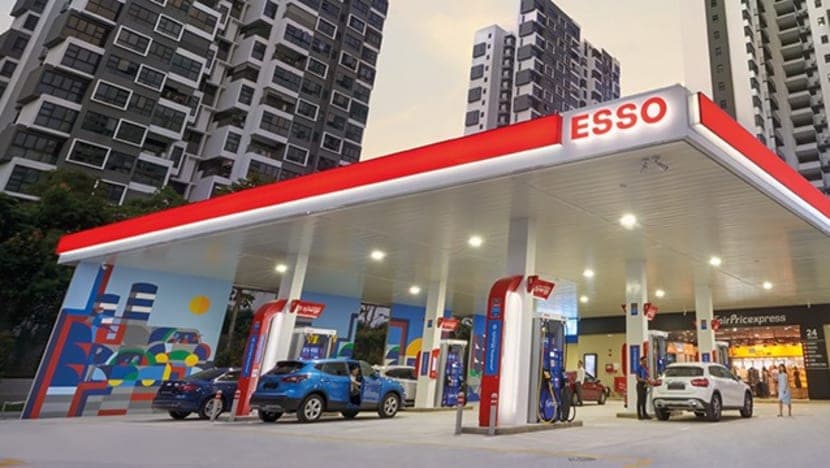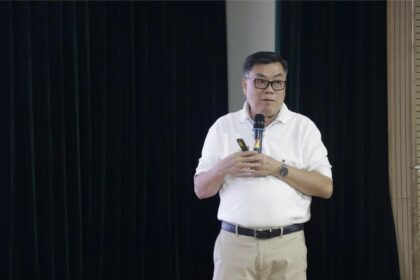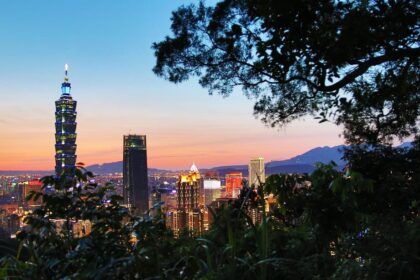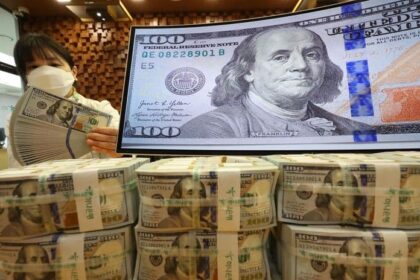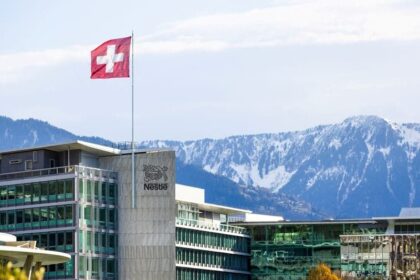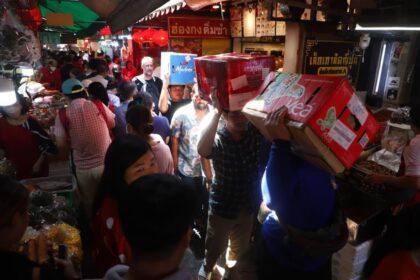Why this sale matters now
Indonesia-based Chandra Asri Pacific will acquire nearly 60 Esso petrol stations in Singapore from ExxonMobil, a shift that reshapes the ownership behind one of the island’s most familiar fuel brands while keeping the Esso name on the forecourt. The transaction, which includes associated supply agreements, is slated to close by year end, subject to regulatory approvals. Under the arrangement, ExxonMobil will supply fuel and Chandra Asri will operate the sites as an independent retailer under a branded wholesale model.
For motorists, day-to-day routines should look the same. The Esso brand remains, the station network stays the same size and in the same places, and existing loyalty programs will continue. The companies say business will continue as usual during the transition.
Behind the scenes, the deal highlights two strategies moving in parallel. ExxonMobil is streamlining retail operations in several markets and focusing on manufacturing and supply in Singapore, where its integrated refinery and petrochemical complex on Jurong Island will continue to run. Chandra Asri, a major player in Indonesia’s chemicals and energy sector, is expanding its regional footprint, building on recent acquisitions in Singapore and investments tied to energy logistics and new energy solutions.
What changes for drivers at Esso stations
Customers can expect the same grades of petrol and diesel, the same Esso signage and a consistent service experience. Loyalty points and cards linked to Esso are set to be honored, and bank card promotions connected to the brand are expected to carry on. The number of stations in the network is not expected to change at this stage.
Convenience stores at Esso locations, often operated as FairPrice Xpress and Cheers outlets, will continue their normal operations. Station staff are employed by FairPrice or its agents. A small number of ExxonMobil employees who support the retail fuels business will transfer to Chandra Asri as part of the handover, while the vast majority of personnel at the forecourts remain in place.
Geraldine Chin, chairman and managing director of ExxonMobil Asia Pacific, said customers should see continuity as the change in ownership takes effect.
“Business is expected to continue as usual during the transition period, with continued recognition of loyalty program benefits.”
Will pump prices shift
In Singapore, pump prices move mainly with international oil product benchmarks, taxes, exchange rates and local competition. Retailers adjust their posted rates as crude and refined product costs change in the global market. Promotions, loyalty points and credit card discounts also play a large role in what drivers actually pay.
The change to a branded wholesale setup could alter the cost structure for the Esso network, since the operating company and the fuel supplier will be distinct. That can offer room to fine tune promotions or retail margins. Price competition across brands is intense, and operators tend to track one another. International oil prices and wholesale fuel costs are likely to have a stronger influence on final pump rates than the change in ownership.
Analysts expect minimal price disruption. With the Esso network size and locations unchanged and supply assured from ExxonMobil’s Singapore complex, motorists should see prices and promotions that look familiar in the near term.
Inside the deal
The transaction covers nearly 60 Esso-branded stations and the supply agreements that keep them stocked. The companies did not disclose the purchase price. Market talk earlier this year put a potential valuation in the area of 1 billion dollars, though neither party has confirmed any figure. Closing is targeted for the end of the year, after required approvals.
ExxonMobil will move to a branded wholesale arrangement. Chandra Asri will run the retail business and sell Esso fuels, while ExxonMobil supplies products from its Singapore manufacturing site. A number of employees who support the retail fuels business will join Chandra Asri. Service station staff remain employed by the site operators.
Independent advisors have been engaged for the handover. Industry sources say investment banks and law firms are supporting the process on both sides.
How a branded wholesale model works
In a branded wholesale structure, the brand owner supplies fuels and licenses the brand, while an independent company operates the stations and handles retail pricing, staffing and site investments. Many oil majors use this model to reduce capital needs in retail, keep their brand in front of drivers and retain steady product offtake from their refineries.
For customers, the arrangement looks the same at the pump. The signage and fuel formulations stay consistent, and loyalty programs usually carry over. The main differences sit behind the scenes in contracts, cost allocation and who sets promotion strategy.
Who is Chandra Asri
PT Chandra Asri Pacific Tbk is one of Southeast Asia’s largest energy and petrochemical groups. The company operates Indonesia’s largest integrated petrochemical complex and has expanded into infrastructure and energy logistics. The group was established in 1992 and has grown through new capacity and acquisitions.
In Singapore, Chandra Asri has been active through a joint venture with Glencore called Aster, which acquired Shell’s Singapore refinery and related refining assets earlier this year. The joint venture also bought a petrochemical plant previously operated by Chevron Phillips Singapore Chemicals and announced upgrades at the Bukom site.
The group has said that EV adoption is accelerating in Singapore and the region, and petrol vehicles will remain in use during a managed transition. It also says it is committed to a low carbon future and will invest in renewable power solutions and innovation for green growth opportunities.
ExxonMobil’s strategy in Singapore
ExxonMobil will keep operating its integrated manufacturing site in Singapore. The complex includes a large refinery and petrochemical units on Jurong Island and produces fuels, chemicals and lubricants for customers in Singapore and abroad.
The sale of the retail network in Singapore tracks a wider move by the company to focus on its core manufacturing and supply strengths while adopting an asset light approach to retail. In recent years, the company has sold or restructured retail networks in several countries, including a sale in Thailand. In parallel, the company has announced plans to reduce its Singapore workforce by 10 to 15 percent by 2027 as part of a global restructuring effort.
What it means for the refinery and chemicals business
The retail sale does not affect the manufacturing site, which will continue to supply fuels to commercial and wholesale customers in the region and globally. For Esso stations in Singapore, the supply link runs directly from the local complex under the branded wholesale arrangement.
Competition and the retail fuel landscape
Singapore’s fuel retail market is competitive and concentrated among a few brands. Esso, Shell, Caltex and SPC operate nationwide networks that are dense for a city of this size. The brands compete on station access, promotions, membership rewards and partnerships with major banks.
Price watchers track posted rates daily and drivers often plan refueling around discount days or credit card benefits. With the Esso brand and loyalty program maintained, the competitive balance among major players is likely to look familiar after the change in ownership.
Over time, service stations in Singapore are adding more energy and mobility services, such as EV charging and improved convenience retail. Chandra Asri has signaled interest in new energy businesses, which could shape how the Esso network evolves in future years, while keeping fuel sales steady during the transition to cleaner transport.
Regulatory approval and timeline
The parties expect to close the transaction by the end of the year after securing regulatory approvals. These typically include competition clearance and the transfer of retail site licenses. The companies have said they will work together to ensure a smooth transition.
Investor reaction has been positive. Shares of Chandra Asri rose on the announcement. The company did not share commercial terms. Reports earlier in the year suggested a price near 1 billion dollars, but the parties have not disclosed the final valuation.
At a Glance
- Chandra Asri will buy nearly 60 Esso stations in Singapore
- Esso brand, fuel grades and loyalty programs will continue
- ExxonMobil will supply fuel under a branded wholesale arrangement
- Business is expected to continue as usual during the transition
- Pump prices are mainly driven by global oil markets and local competition
- Station numbers and locations are expected to stay the same
- Deal value was not disclosed, earlier market talk suggested about 1 billion dollars
- ExxonMobil keeps its Jurong Island refinery and petrochemical site
- Planned workforce reductions in Singapore of 10 to 15 percent by 2027 remain separate from this deal
- Chandra Asri is expanding regionally, including recent Singapore refinery and chemical acquisitions through its Aster venture
- Closing is targeted by year end, pending regulatory approvals


